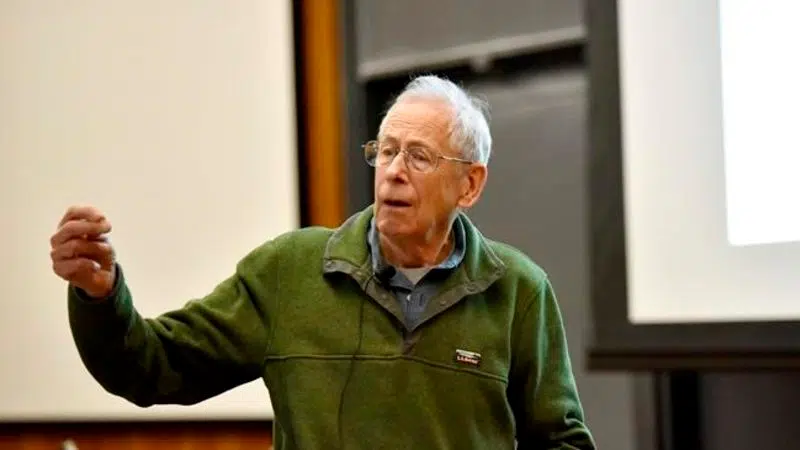
Canadian born James Peebles wins Nobel prize in physics this year
STOCKHOLM — Canadian born scientist James Peebles is one of three people who have won this year’s Nobel Prize in Physics for their contributions to the understanding of the evolution of the universe and Earth’s place within it.
Peebles, born in St. Boniface, Man., is a physics professor at Princeton University in New Jersey. He won the award “for theoretical discoveries in physical cosmology.”
In announcing the award in Sweden Tuesday, the Nobel committee said that Peebles’ work laid a foundation for the transformation of cosmology over the last 50 years and is the basis of our contemporary ideas about the universe.
Peebles told a news conference he was uneasy about starting work in the field in 1964 at the invitation of professor Robert Dicke, who was his mentor.
